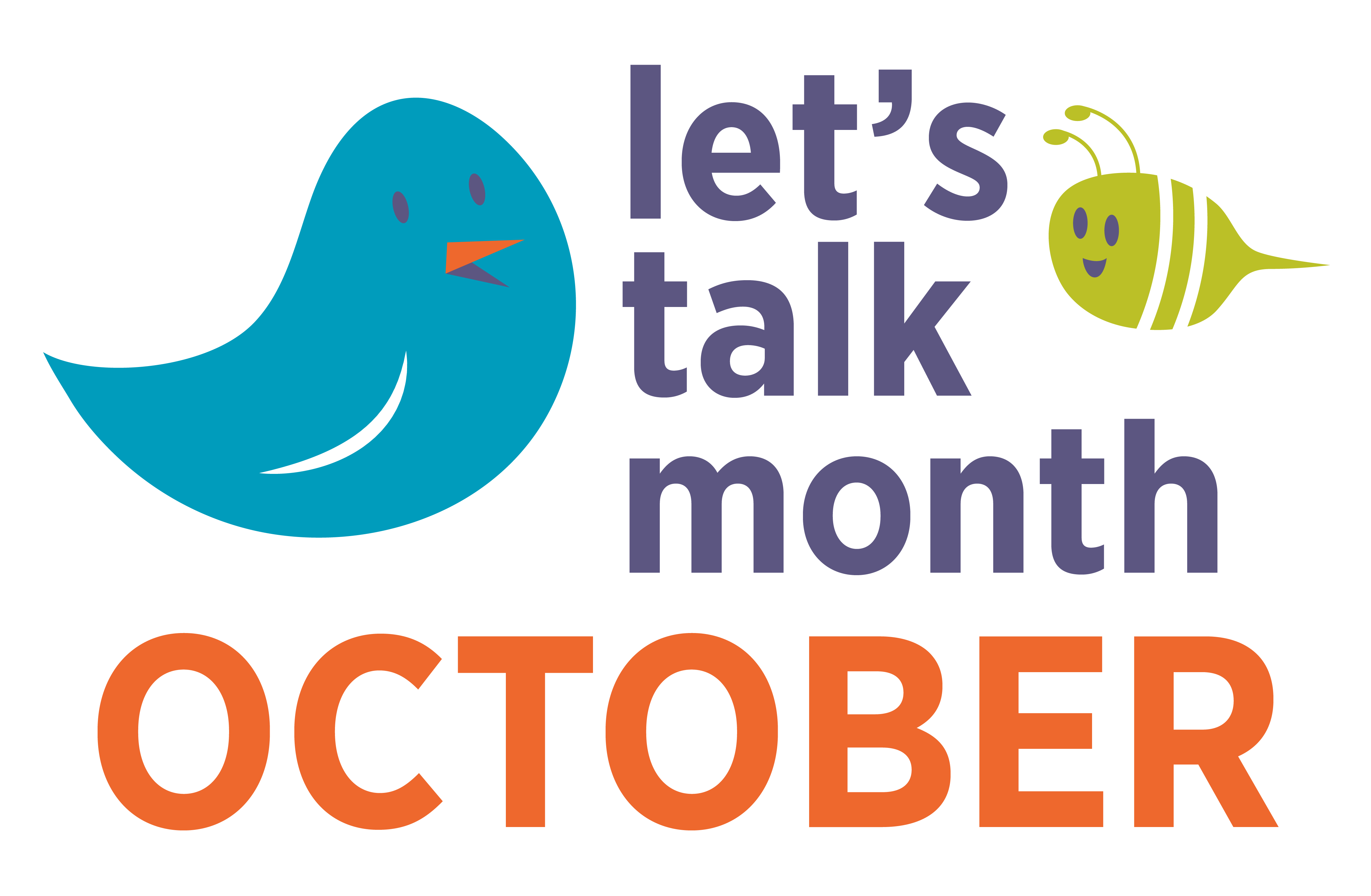October is Let’s Talk Month. Although we celebrate this one month to encourage parents/caregivers, it should be a reminder about the importance of talking to your child about sexuality and their sexual health on a regular basis. We want you to be able to open the door to these conversations. At the Alabama Campaign, we believe parents and caregivers are the best teachers for their young people, but sometimes they need help with the tools. That’s what Let’s Talk Month is all about.
There are a lot of assumptions out there when it comes to what our young people are learning and how much of that information is helpful. Let’s bust a few of those myths.
MYTH: My child gets sex ed in school. They get all the information they need.
FACT: Although 82.7% of parents with children in Alabama public schools believe sex education should be taught, Alabama does not mandate sex education in schools. This means that if sex education is taught, topics and accuracy vary widely. However, we know from the CDC School Health Profiles that many young people in Alabama do not receive sex education at all.
It’s up to you to know what your child’s school policy regarding sex education is because there is such a wide range of information given. If you feel information at your school is lacking, you can be an advocate for more comprehensive sexual health education. If your child isn’t getting all the information you want them to have, it’s important to supplement that education at home.
Though hard at times, it is important to talk with your young person because it helps keep them safe. Having fact based information about their body, how to keep their body healthy, how to build healthy relationships and make the best decisions for them will help keep them safe through adulthood. Sexuality is a broad topic that includes body parts, self-esteem, friendships, relationships, messages from the media and our friends, our values, etc.
– Sexuality at every age and stage – check out this tip sheet of what topics and questions are relevant at each age and stage.
MYTH: Talking about sex and sexuality will cause my child to have sex and be unsafe.
FACT: “When young people feel unconnected to home, family, and school, they may become involved in activities that put their health at risk. However, when parents affirm the value of their children, young people more often develop positive, healthy attitudes about themselves. Although most adults want youth to know about abstinence, contraception, and how to prevent HIV and other sexually transmitted infections (STIs), parents often have difficulty communicating about sex. Nevertheless, positive communication between parents and children greatly helps young people to establish individual values and to make healthy decisions.” – Advocates for Youth
Young people repeatedly say that their parents are the biggest influence in their decisions about sex. That means you have a lot of power to influence them not only about sex, but also relationships, health, their bodies, etc. They also receive different information from a variety of sources (teachers, peers, religious leaders, etc), so it’s important to come back to the conversation again and again.
– Tips to keep kids safe – talking to our kids/teens about sexuality, boundaries, and our bodies keeps them safe from abuse.
KEEP THE CONVERSATION GOING!
It’s easy to let our emotions run the conversations when we are worried or concerned about our young person. Remember that you love them and you want them to have the information to make the best decisions. Take a breath, remind yourself that you care about them, pause, and then respond. Try using some of the Door Openers below to start the conversation. You’ll be amazed how much more they will share with you. Try to keep the door open to conversations about sexuality. Ask them what they think and why? How they came to that conclusion? How will it feel if … happens to a friend or if … were to be a consequence of a behavior? Young people are learning their own values and figuring out what is important to them so keep picking their mind to ask them how they decided on that. This helps them understand how they make decisions because their prefrontal cortex (the part of the brain that uses logic and critical thinking) is still being developed during adolescence and into early adulthood. Help them sort through their values and the why’s behind them.
When we use the Door Slammers it does just that, it ends the conversation. They may not turn to you next time they want a second opinion and they will find it somewhere else. Take a minute to share your values and seek their perspective.
Door Openers
- “What do you think?”
- “That’s a good question.”
- “I don’t know, but I’ll find out.”
- “I’m trying to understand what you’re feeling/ asking?”
- “Do you know that word means?”
- “I’m glad you told me about that.”
Door Slammers
- “You’re too young.”
- “Where did you hear that?”
- “If you say that word again, I’ll …”
- “That’s none of your business.”
- “I don’t care what your friends are doing.”
- “That’s just for boys (girls).”
- “We’ll talk about that when you need to know.”
Thank you to myHealth in Minnesota for providing this valuable content for Let’s Talk Month.

